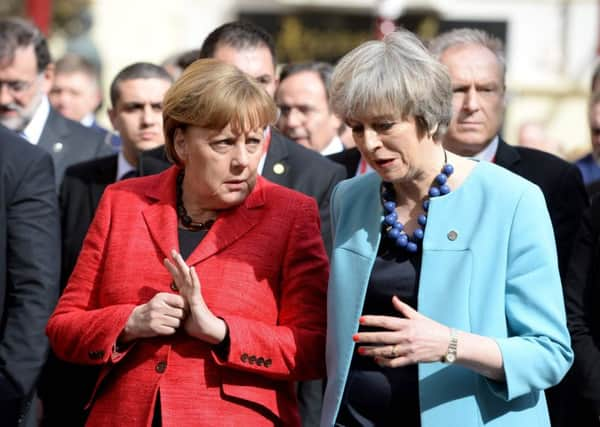Leader comment: The threat to security must be primary concern


And it can also be of no surprise that Mrs May brought the subject of money up when she talked about Nato
For all the displeasure shown by the European leaders in dealing with the new US president, the EU is still reliant on the US in its military strategy. Earlier this year, the EU laid out a document which contained a global strategy for the EU and its security, and that said the European Union wanted to deepen the transatlantic bond and the partnership with Nato. It might seem odd that Donald Trump’s America was listed as a threat to the EU, but in essence the reliance on Nato remains.
Advertisement
Hide AdAdvertisement
Hide AdBut of course Trump has already voiced his low opinion of Nato, describing it as obsolete, and he has said that the US would only come to the aid of a Nato ally, as the country is obliged to do under Article 5 of the treaty, if the ally under attack had made the required payments to the alliance, which few European countries do. Now that might just be the businessman in Mr Trump, but then that is what he is, a businessman. When Mrs May came back from her controversial visit to Washington, Downing Street was said to be pleased that she had managed to wring out of Mr Trump a statement that he was 100 per cent committed to Nato. But of course the trouble with Mr Trump is that consistency is unlikely to be the hallmark of his administration. It appears Mrs May herself is not entirely convinced, hence her appeal to EU leaders to increase defence spending and meet the pledge they have made to spend a minimum of 2 per cent of GDP on defence.
The growing threat from Russia continues to focus minds. Yesterday UK, Defence Secretary Sir Michael Fallon announced that Russia is carrying out a sustained campaign of cyber-attacks targeting democracy and critical infrastructure in the West in the hope of destabilising governments, and that is not the language or position of diplomacy.
And Europe is seeing an arms build up – the Russian occupation of the Crimea and the war in Ukraine have so worried Nato members in central Europe that the US has been obliged to permanently station 4,000 troops, complete with battle tanks, along Russia’s western border for the first time.
The move prompted Russia to say it felt threatened.
So while Brexit, international trade talks and immigration are obviously important for Theresa May and Britain, we would do well not to get distracted from what is a more fundamental issue.